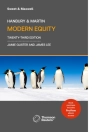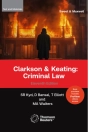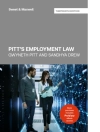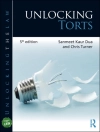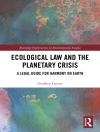Excellent balance of case excerpts and author explanation, highly appropriate for undergraduate students.
—Dr. Wendy Brame,
Briar Cliff University
Political factors influence judicial decisions. Arguments and input from lawyers and interest groups, the ebb and flow of public opinion, and especially the ideological and behavioral inclinations of the justices all combine to shape the development of constitutional doctrine. Drawing from political science as much as from legal studies,
Constitutional Law for a Changing America: A Short Course helps students realize that Supreme Court cases are more than just legal names and citations. With meticulous revising, the authors streamline material while accounting for recent landmark cases and new scholarship.
Ideal for a one semester course, the
Ninth Edition of
A Short Course offers all the hallmarks of the Rights and Powers volumes (also included in the
Constitutional Law for a Changing America series) in a more condensed format.
I
ncluded with this title:
LMS Cartridge: Import this title’s instructor resources into your school’s learning management system (LMS) and save time.
Don’t use an LMS? You can still access all of the same online resources for this title via the password-protected Instructor Resource Site.
Содержание
Part I The U.S. Constitution
Chapter 1 The Living Constitution
Chapter 2 Understanding the U.S. Supreme Court
Part II Institutional Authority
Chapter 3 The Judiciary
Chapter 4 The Legislature
Chapter 5 The Executive
Part III Nation-State Relations
Chapter 6 Federalism
Chapter 7 The Commerce Power
Chapter 8 The Power to Tax and Spend
Part IV Economic Liberties
Chapter 9 The Contract Clause
Chapter 10 Economic Substantive Due Process
Chapter 11 The Takings Clause
Part V Civil Liberties
Chapter 12 Religion
Chapter 13 Foundations of Freedom of Expression
Chapter 14 Modern-Day Approaches to Free Expression
Chapter 15 Freedom of the Press
Chapter 16 The Right to Keep and Bear Arms
Chapter 17 The Right to Privacy
Part VI The Rights of the Criminally Accused
Chapter 18 Investigations and Evidence
Chapter 19 Attorneys, Trials, and Punishments
Part VII Civil Rights
Chapter 20 Discrimination
Chapter 21 Voting and Representation
Reference Material
Об авторе
Thomas G. Walker (Ph D, University of Kentucky) is the Goodrich C. White Professor Emeritus at Emory University, where he won several teaching awards for his courses on constitutional law and the judicial process. His book A Court Divided, written with Deborah J. Barrow, won the prestigious V. O. Key Award for the best book on Southern politics. He is the author of Eligible for Execution and coauthor of The Supreme Court Compendium: Data, Decisions, and Developments, 7th Edition, with Lee Epstein, Jeffrey A. Segal, and Harold J. Spaeth.


